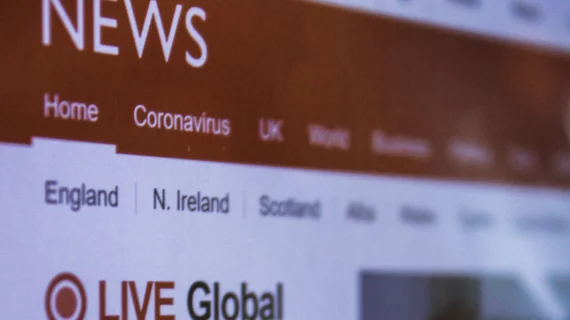For silent waiting-room reading: Notable quotes about hospitals in the news
‘When a healthcare provider refuses to wear a mask at the request of an at-risk patient, nothing can destroy trust more than that. One of the most important sections of the AMA code of ethics … says the relationship between patient and physician is based on trust and gives rise to physicians’ obligations to place patient welfare above obligations to other groups.’
—Mark Rothstein, JD, founding director of the Institute for Bioethics, Health Policy and Law at the University of Louisville School of Medicine. Source: Forbes, “Hospitals Deny Immunocompromised Patients’ ADA Requests For Masks.”
‘Hospitals have a lot of money at stake and will fight this [Lower Costs, More Transparency Act] hard. Hospitals feel that, if they lose here, down the road there will be more substantial steps.’
—Matthew Fiedler, PhD, senior fellow at the Brookings Institution’s Center on Health Policy. Source: KFF Health News, “In Fight Over Medicare [Site-Neutral] Payments, the Hospital Lobby Shows Its Strength.”
‘Private equity is a travesty under the best of circumstances. It is especially toxic when it buys and loots hospitals. ... [T]he entire business model of private equity is one grand abuse. The right remedy to that problem is to shut it down.’
—Robert Kuttner, co-founder and co-editor of The American Prospect (magazine “devoted to promoting informed discussion on public policy from a progressive perspective”). Source: The American Prospect, “Reversing Private Equity’s Looting of Hospitals.”
‘People say safety regulations are written in blood. I don’t want to bleed. I don’t want to be the person who ultimately moves Einstein [Healthcare Network] to do what they should do.’
—Carla LeCoin, RN, NICU nurse at Jefferson Einstein Medical Center in Philadelphia. Source: The Philadelphia Inquirer, “‘I went home with blood all over me’: At Philly hospitals, healthcare workers face routine violence.”
‘These [cyberattacks on hospitals] can affect everything from patient care to payroll. Fully recovering can take months. It’s not simply a matter of flicking a switch and everything comes back on.’
—Brett Callow, cybersecurity analyst at Emsisoft of Nelson, New Zealand. Source: Associated Press/ABC News, “Cyberattacks on hospitals are likely to increase, putting lives at risk, experts warn.”
‘For years Americans have faced acute shortages of critical drugs, from chemotherapy to antibiotics, endangering patients. Our inquiry requests information on the factors driving these shortages and scrutinizes the practices of opaque drug middlemen.’
—Lina Khan, JD, chair of the Federal Trade Commission. Source: FTC and HHS, “Joint request seeks information on impact of group purchasing organizations and drug wholesalers on access to generic pharmaceuticals.”

